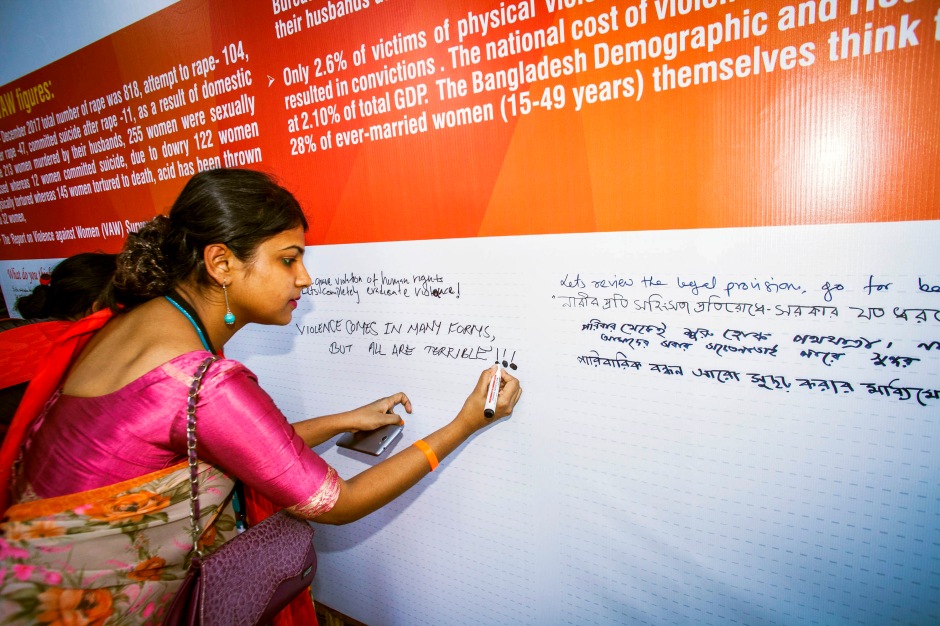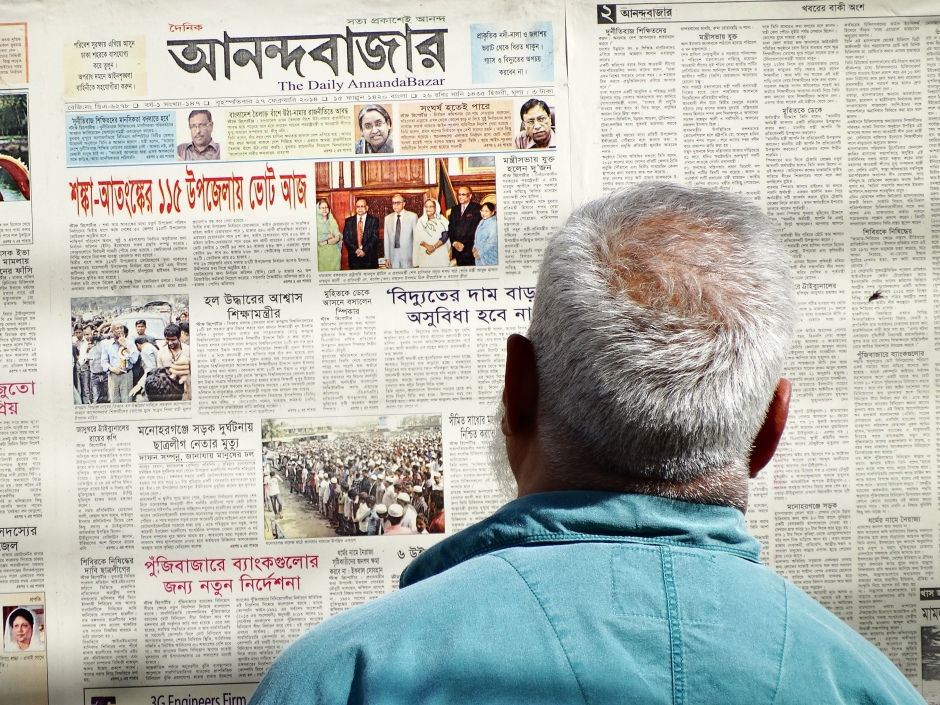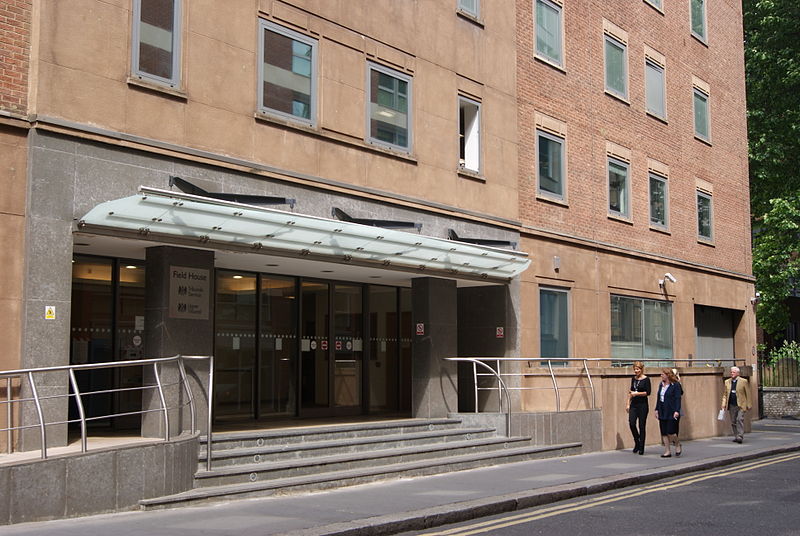Tasfiah Rahman reflects upon how diasability cases in Bangladesh have been handled in the past, how this has changed over the years, and a discusses a way forward, focusing especially on disabled women’s rights.
Bangladesh has adopted the definitions of disability from WHO 2004 and the Convention on the Rights of Persons with Disabilities 2006, stating that disability is an umbrella term that covers impairments limiting human activities and participation restrictions.1 There are people who are born disabled and there are some who become disabled due to natural disasters, road accidents, social and family violence, malnutrition, unavailability of vaccinations and congenital malformation.2
Why should the topic of disability be taken seriously?
Many communities shy away from the topic of disabilities such as discussing the inability to do certain tasks in our daily life will somehow be signified as weakness. This should strongly not be the case. Bangladesh, being a developing country for years, is still in the process of changing so many past norms and cultural beliefs that have discriminated against many of their own members of the community. People with disabilities have been hidden behind the curtains and this slowly has to change where they feel included and ready to be heard. Human Rights Watch has highlighted the psychosocial impact of the disabled being constantly anxious, depressed, suffering from post-traumatic stress, psychological distress, and enduring fear for how they’ve been treated for years.3 These psychosocial impacts are exacerbated by what is often a prolonged and expensive justice process, during which victims can face re-traumatization, recurring medical fees, economic hardship, stigma, lack of support, and sometimes threats to drop their case.4
Disability cases in the past
It took many years for the courts and the government to take disability cases seriously as many courts wouldn’t even consider taking in a disability case. BLAST and another vs. Bangladesh and others (1998) was a case about Muhammed Sarwar Hussain Khan, a person with visual impairment. He filed a writ petition challenging a circular issued by the Minister of Establishment.5 The writ petition stated that there was no reservation for physically disabled persons in the first and second class post of the services of Government.6 This case was unfortunately disposed as it was unsuccessful on calling upon the Ministry of Establishment and7 the Ministry of Social Welfare to show cause why the impugned circular amending the reservations for persons with disabilities for direct employment in government services.8
Women who have dealt with disabilities in the past
More dilemmas are seen in communities with arranged marriages. A Bangladeshi client, Amina, had learning difficulties where she had difficulty grasping knowledge compared to others was in a complicated scenario with her family. F Hepper considers how Amina being trapped in the norms and cultural ritual of an arranged marriage with learning difficulties is brutal.9 Amina lacked the capacity to participate in school lessons with her siblings which led her to live in a more protected and sheltered existence at home with her mother.10 Her parents thought marriage would solve her issues. The obstacles which women and girls faced in the past legal system, especially with disability, still have a long way to go.11
Disability resulting from an acid attack can also severely impact a woman’s ability to perform physical work that she previously may have been able to do, thus cutting off an important component to financial independence. Acid Survivors Foundation has provided free and long-term medical care and socioeconomic rehabilitation to thousands of acid attack survivors in Bangladesh.12 However these services have often been unavailable to victims of gender-based violence because of under-resourced groups and limited state facilities.13 As the number of acid attacks have decreased, attention to acid violence has waned and donors are losing interest, leaving ASF with fewer resources to fill these needs.14
Women and girls are almost invariably among the poorest, most oppressed and excluded members of society. Negative attitudes, and environmental and institutional barriers have made them a vulnerable and neglected section of society. Children and adults are frequently prevented by law and in practice from realising their social, political and economic rights. Women are particularly subject to becoming victims of family violence. Furthermore, both adults and children are often excluded from opportunities to address their own concerns because their problems are primarily discussed from a medical or welfare perspective.
Recent disability cases in Bangladesh
The most recent Act which was enacted by the government of Bangladesh is the Rights and Protection of Persons with Disability Act 2013 in line with the United Nations Convention on the Rights of Persons with Disabilities. However, there were questions under this Act in the case of BLAST, NGDO and NCDW v Bangladesh and Others (2015) as this act was not properly applied here.15 Section 31 of the Act provides registration and issuance of identity cards to persons with disabilities, and further states that no persons with disabilities will be able to secure any protections under the Act without such a card.16 Section 36 prohibits discrimination based on disability and provides for remedies against such discrimination, including compensation.17 However one and a half years since the passage of this law, no gazette notifications were published bringing into force Sections 31 and 36.18 There have been many other cases that have been disposed of or kept pending for years.19 In the mentioned case, the court could not give it valuable time to come up with a decision especially for the people who are struggling with their disability here.20
The question now arises whether this is still the same situation in the modern era where the laws are more developed. In 2020 the government passed the National Building Construction Act.21 This act requires physical structures to be made accessible to those with disabilities.22 However, the government did not implement the law effectively as the government still did not them provide with accommodations or pay their rent.23 The law calls for the establishment of local committees to expedite implementation of the law, but most committees had not been activated. 24 The law requires persons with disabilities to register for identity cards to track their enrollment in educational institutions and access to jobs.25 This registration allows them to be included in voter lists, to cast votes, and to participate in elections which is a big step.26
How Post Covid has affected the disabled and a way forward
People with disabilities have also been affected by COVID-19 during 2020 to 2021, have faced multiple layers of deprivation during this period with shrinking economic activities and fear of hunger.27 Support provided by the government and others is not easily accessible.28 The International Labour Organisation has reported that the risk in the response to the current crisis is that people with disabilities will be left behind once again.29 A report on ‘Covid-19 Impact on Vulnerable Groups: People with Disabilities’ by Innovision, a research based non-governmental organisation, shows that 74 per cent of people with disabilities in Bangladesh have lost all of their income sources.30
Sightsavers has identified a number of focus areas for influencing the government and donor agencies to take adequate measures, protecting people with disabilities from the short-term and long-term adverse impacts of COVID-19.31 To start off, developing a policy and budget allocation in consultation with people with disabilities and their representative organisations would really benefit their health.32 Using sign language and accessible web content in all campaign activities/press conferences on COVID-19 and making websites of the ministry of health and family welfare especially for deaf/blind people could very much help them in helping them gain knowledge about their situation.33
Again, prioritising women and girls with disabilities in any specific initiatives for women, including sexual and reproductive health services, by ensuring them adequate water, soap and menstrual supplies is an important solution here.34 There are other steps taking place, including a government directive to the Association of Private Employers to prevent people with disabilities from losing jobs due to COVID-19.35 Furthermore, providing loans to people with disabilities with low interest rates to resume their businesses can also make a huge impact in their lives.36
Photo credit:”FM speaking at the 8th session of the Conference of States Parties to the Convention on the Rights of Persons with Disabilities” by Estonian Foreign Ministry is licensed under CC BY 2.0.
‘DISCLAIMER: THE BPP HUMAN RIGHTS BLOG, AND ALL PIECES POSTED ON THE BLOG, ARE WRITTEN AND EDITED EXCLUSIVELY BY THE STUDENT BODY. NO PUBLICATION OR OPINION CONTAINED WITHIN IS REPRESENTATIVE OF THE VALUES OR BELIEFS HELD BY BPP UNIVERSITY OR THE APOLLO EDUCATION GROUP. THE VIEWS EXPRESSED ARE SOLELY THAT OF THE AUTHOR AND ARE IN NO WAY SUPPORTED OR ENDORSED BY BPP UNIVERSITY, THE APOLLO EDUCATION GROUP OR ANY MEMBERS OF STAFF.’











